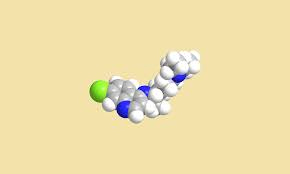
Laurent Schwartz *1,2 , Jean Gabillet1, Ludivine Buhler1,-Marc Steyaert1
1 LIX, Ecole Polytechnique, 93 Route de Saclay, 91128 Palaiseau, France;
2 Assistance Publique des Hôpitaux de Paris (AH-HP), Paris, France
*Correspondence: Laurent Schwartz, École Polytechnique Laboratoire LIX, 91128 Palaiseau, France.
e-mail: laurent.schwartz@polytechnique.edu
Keywords: Hydroxycitrate, alpha lipoic acid, chloroquine, metformin, metabolism, metastatic cancer
Received: 11 October 2014; Revised: 16 October 2014
Accepted: 1 December 2014; electronically published: 3 December 2014
Summary
Background: The combination of hydroxycitrate and lipoic acid has been demonstrated to be effective in reducing murine cancer growth. Early reports suggest a major efficacy in advanced human cancer.
Patients and Methods: Three patients with advanced, chemoresistant cancer were treated by a combination of lipoic acid and hydroxicitrate (MetablocTM) followed by the addition of metformin and chloroquine. Another patient was treated with a combination of Metabloc and cycloserine
Results: Side effects of metabolic treatment are mild. Treatment with Metabloc resulted in a transient drop in tumor marker. The addition of chloroquine and metformin resulted, within one week, in further decrease in tumor marker level. Whether this drop in marker will be sustained is an open question.
These results are in line with published animal data. They also put in evidence the extreme reactivity and variability of cancerous cells. Randomized clinical trials are being defined to confirm the major efficacy of metabolic treatment.



Bonjour,
Je n’ai pas pu traduire en français les textes du fait que le français n’est pas indiqué dans le menu déroulant de la
fenêtre « TRADUIRE »…que faire ?
D’avance merci pour la réponse.
Cordialement.
Lucien CALBO.
Bonjour,
Traduisez une première fois dans n’importe quelle langue, puis reselectionnez une langue et vous pourrez choisir français.
Bien à vous